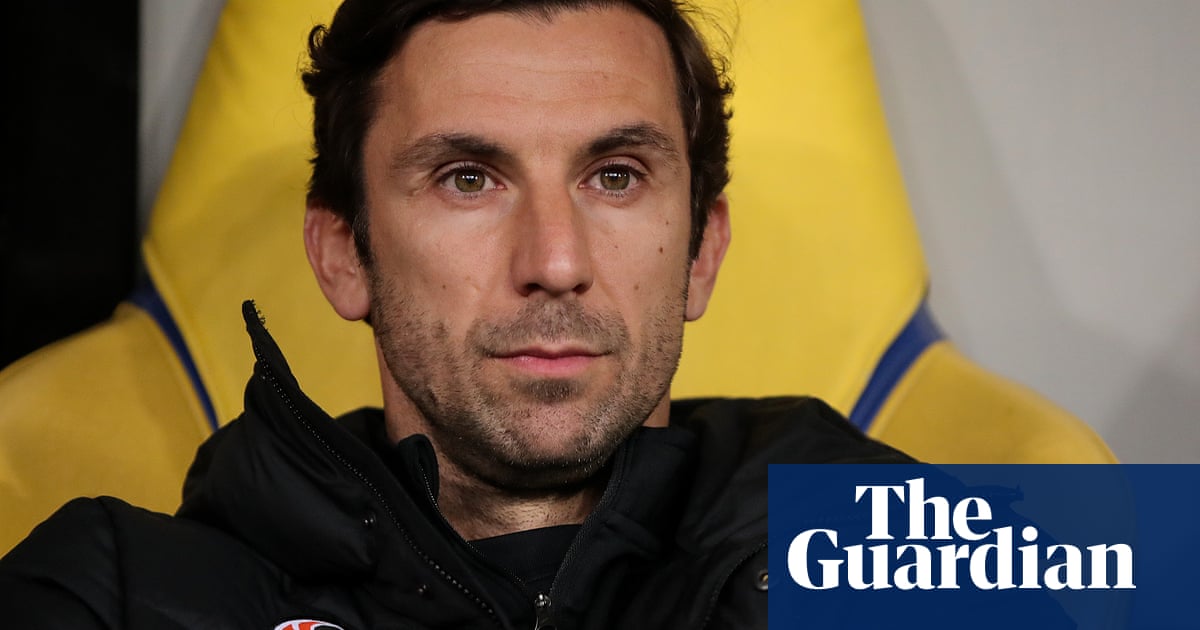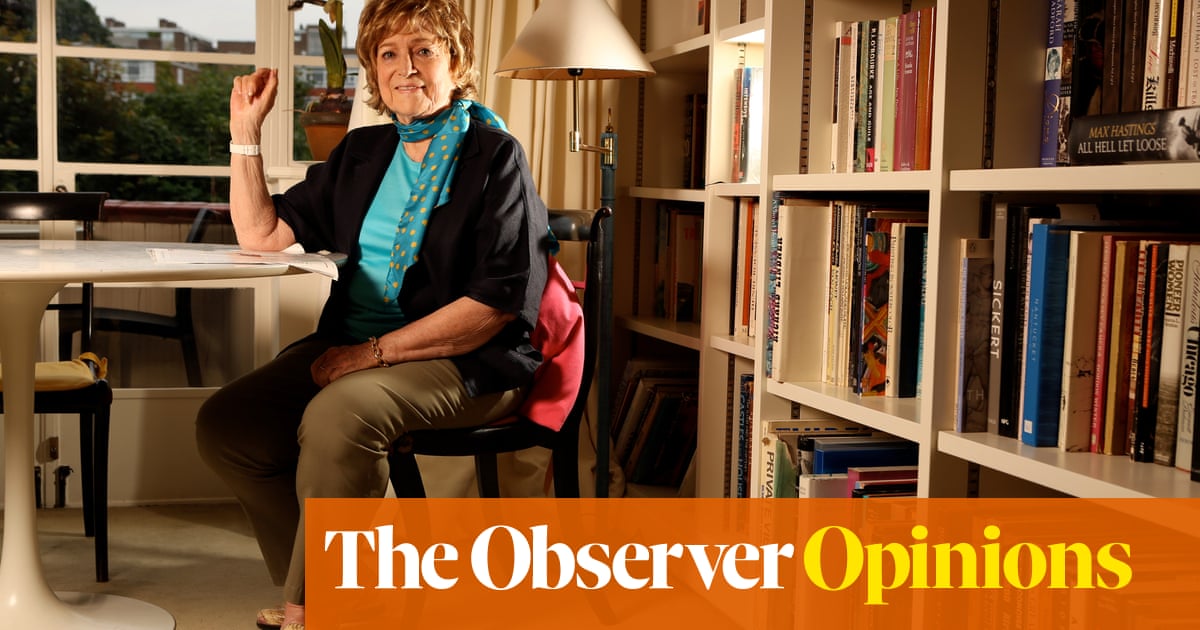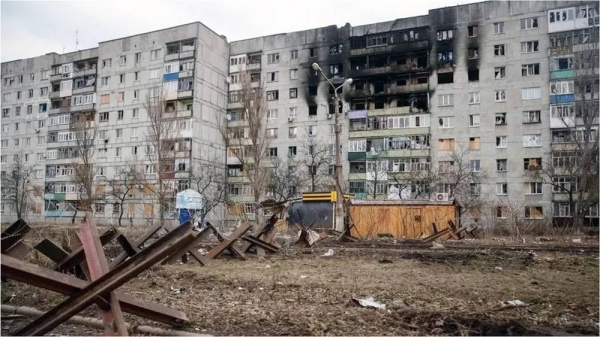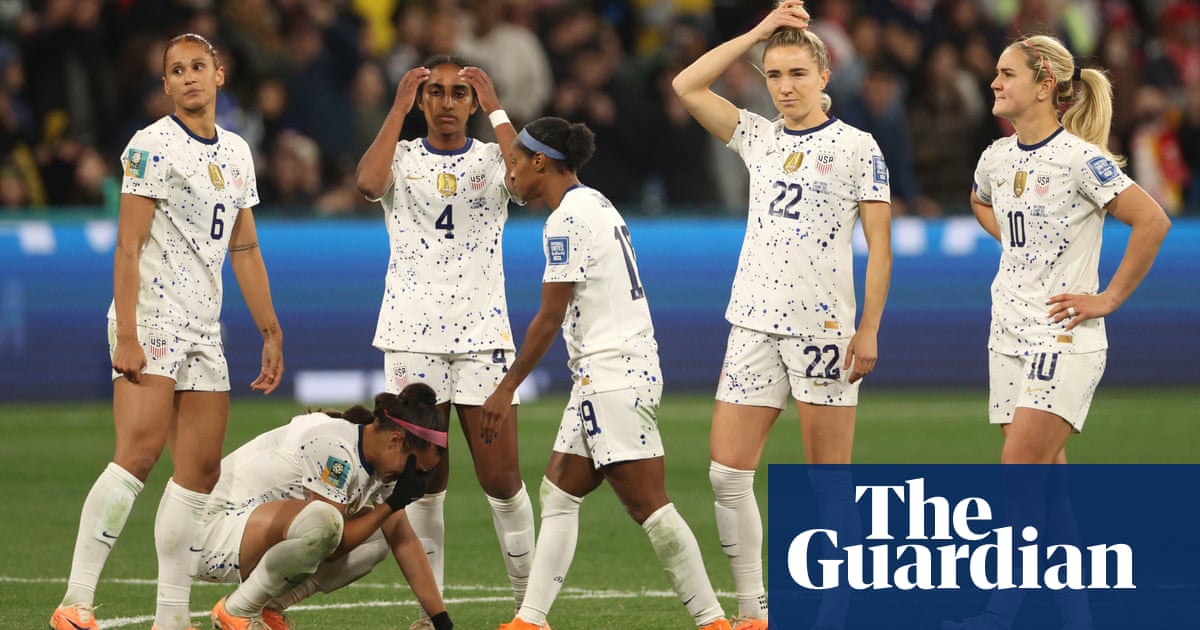
Almost 11 months have passed since Darijo Srna left Kyiv, not knowing when or if he would return. “Russia has not stopped,” he says. “Look what they did in Dnipro a few days ago: 40 people dead. The only thing that has changed is that we are even stronger and more united, working and waiting for a great victory. The whole world will find a way to end this.”
The Croat is sitting in the west London cafe where, days after completing his evacuation, he met the Guardian last March. Right up to the clear, cold blue sky outside, the scene is almost identical. But no two days have been the same for Shakhtar Donetsk’s director of football over the intervening period. He has had to react to his squad’s decimation after the Ukrainian top flight shut down; there was the long, difficult but ultimately successful struggle to resurrect the domestic game in August; most recently he helped broker the sale of Shakhtar’s prize asset, Mykhaylo Mudryk, to Chelsea in a deal worth up to £88m.
“If there was no war, the price would have been much higher,” he says. “Misha has shown the whole world that he is one of the best players in that position. Look at what he did: we lost 14 players and there, at 21 years old, he stepped up to take a huge responsibility and be one of Shakhtar’s leaders during Russia’s aggression. He had an amazing chance and he took it.”
It was, Srna admits, an emotional moment when Mudryk walked on to the Stamford Bridge pitch, draped in a Ukrainian flag, after completing his move on Sunday. “I’m proud of you and you should be proud of yourself,” he told a youngster who had, during his earlier years at Shakhtar, been underused at first-team level to the considerable chagrin of those upstairs. Srna was not involved in discussions with Arsenal, who had appeared firmly in pole position for Mudryk’s signature, but was among the delegation dealing directly with Chelsea. The Todd Boehly regime was, he explains, clean and unproblematic in completing a move that raised eyebrows.
“It was a straightforward process that began a month or two ago and I can only say they were correct from the first day,” he says. “They didn’t call the player without our permission, everything was respectful. They showed how much they wanted him, arrived at our training camp in Antalya on Saturday to finish the deal, and it was a pleasure to work with them.
“I can’t speak about Arsenal. I had one friendly coffee with Oleksandr Zinchenko and we talked about Mudryk, but in the end it’s simple: they had to pay what our club president wanted. The rest of us were just here to help negotiations and make everyone happy. Chelsea will see that they’ve got an amazing person and player.”
Ultimately it was just business but not everybody took it that way. Srna explains he received abusive messages, amounting to death threats, from some Arsenal supporters on social media after the deal was completed. The politer ones accused him of sabotaging Mudryk’s future by facilitating the move to Chelsea. Shakhtar, though, were perfectly entitled to do the best possible deal.
They received their windfall and, perhaps, thanked their lucky stars that Mudryk is Ukrainian. One of the reasons Srna wants to speak now is that he is furious with Fifa and what he sees as its neglect of Ukraine’s football clubs. Last Friday the court of arbitration for sport (Cas) dismissed Shakhtar’s appeal against Fifa’s emergency transfer rules, extended last June, that let foreign players and coaches suspend their contracts until the end of June 2023, allowing them to accept loan moves to other countries and essentially running down their transfer values. Their claim for about €50m of damages from the governing body, centred around what Shakhtar say were lost transfer fees for four players in particular, was also rejected.
“The whole world is helping Ukraine but Fifa doesn’t help its football,” he says. “It’s their duty and they do nothing.” Shakhtar have long honed a strategy of signing players from abroad and later doing brisk, often hard-nosed, trade with Europe’s biggest clubs; they had been relying on that to continue during a war that savaged their income streams and left them playing behind closed doors.
“What Fifa have done to us is not right. They will destroy us. We’re not asking for money that isn’t ours: we want to protect a club that has played 17 times in the Champions League group stage. And it doesn’t matter whether it’s us or another club, it’s the entire country. We want them to protect the Ukrainian league and instead we feel as if we’re fighting not only against Russia, but against Fifa too.”
Although Srna is reluctant to give examples, the situation involving Manor Solomon, who would have joined Fulham for a transfer fee last summer until the Premier League club understood they were entitled to take the player on loan, is understood to be a case in point. Some clubs, although not all, took advantage of Shakhtar but he is reluctant to blame them. “In the end, Fifa created the conditions for it to happen,” he says.
A perceived lack of engagement rankles deeply, particularly in comparison with the hands-on approach taken by the Uefa president, Aleksander Ceferin, last year when the foreign nationals among Shakhtar’s players and staff needed to escape Ukraine. There is a sense Fifa is more distant, less accountable. “They are behaving as if they don’t care and what can we do? We are small to them,” he says. “We’ve restarted our league all by ourselves. We’ve only lost two top-division clubs so far: Mariupol and Desna. Everyone else managed to stay alive. Can you imagine that Fifa is watching all this happening, while people are dying and footballers are playing under bombs and sirens, and doing nothing?
“We all watched the World Cup: on the one hand you’re seeing people smiling in Qatar, a well-organised tournament, a great level of football; from the other side we saw them not allow President Zelenskiy to give a message before the final about what’s happening. I invite them, with all my heart, to visit Ukraine for a few days. I want to show them everything, to help them feel it a little bit. After that, maybe they’ll understand that what we have is worth protecting.”
Asked by the Guardian, Fifa did not offer any comment about the Cas ruling or its context. It has said in the past that “key football stakeholders” were consulted, including the European Club Association, regarding rules surrounding contract suspensions.
In the meantime Srna and Shakhtar are trying to do their bit. Srna is immensely proud that Rinat Akhmetov, the club president, announced a £20.5m donation to the Ukrainian war effort a few hours before our conversation. Where he hears words from Fifa he sees actions from Akhmetov, whose donation will help fund the Heart of Azovstal project. “Remember we lost our home, in Donetsk, in 2014,” he says. “The president has lost a lot of money but he’s been there from the first day, investing money in football but also helping the people. We need examples like him, people who will help Ukraine. Even on Sunday, when he called and I put him on the phone to Misha, the air raid siren was going off as they spoke. That is the reality everyone faces.”
For Srna’s part the collaboration with his former club Hajduk Split, who accepted more than 80 of Shakhtar’s academy players and staff last March, continues. The Croatian club are still hosting the Ukrainian youth prospects and there is more: by a delightful twist of fate, Shakhtar will travel to Hajduk in early February for a Uefa Youth League last-16 playoff tie. “A special game for us,” he says. “All our academy is there and now we’ll face them. It’s destiny.”
Shakhtar’s immediate prospects are uncertain. Losing Mudryk was a blow to their hopes of winning a 14th title since the turn of the century: they sit five points behind Dnipro-1 at the Premier League’s midway stage with a game in hand, although second place would at least mean they retain a chance of Champions League football next term. With a revamped lineup, forced to promote young prospects early, it counts as an achievement. “It’s been very difficult to play again and I’m so proud of everyone,” he says. “The sirens, the threat of bombing, sometimes going into shelters during games, it’s not been nice. They showed how much they love Ukraine and Shakhtar.”
A new Mudryk would help. Shakhtar will look within Ukraine and a favoured hunting ground, Brazil, for a replacement during the mid-season break but it will probably be a younger player who needs time. Srna says there are three or four “future Mishas” in their team: the 20-year-old midfielder Heorhiy Sudakov is known to have admirers. “They will grow up faster than normal. I know their talent and soon we’ll know their strength.”
Srna has seen the fortitude of both Shakhtar and Ukraine. He repeats the message of last year, in this same spot, even if this time it comes in spite of the global game’s leaders. “We will survive,” he says. “For Ukraine, our people and our fans. We will survive.”












